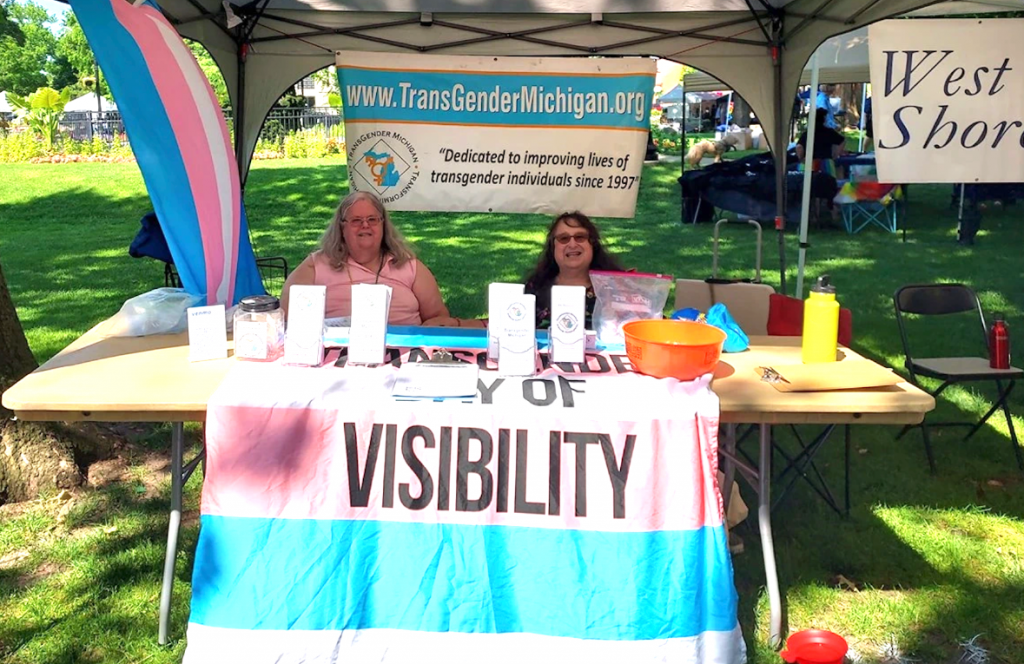
By Pau Crego–
Every year on March 31, trans people and our allies celebrate the International Trans Day of Visibility (TDOV). TDOV is an opportunity to acknowledge and honor trans people’s contributions to society, and raise awareness about trans issues.
Founded in 2010 by Rachel Crandall Crocker, the Executive Director and Co-Founder of Transgender Michigan, TDOV uplifts the joy, accomplishments, resilience, and empowerment of trans communities. The creation of TDOV was incredibly important at a time when the only annual event honoring trans people was Trans Day of Remembrance, a time to mourn trans community members who have passed away in the previous year due to violence and suicide, among other reasons.

Furthermore, back in 2010, TDOV was instrumental for our visibility. Learning about trans communities was not as readily available online as it is nowadays given the rise in content over the past 16 years via social media, blogs, podcasts, and other personal storytelling platforms.
The increased visibility of trans people’s experiences has been instrumental to educate allies and decision-makers, break down stigma, and hopefully shatter the assumption that trans communities are a monolith. It has surely facilitated the trans rights movement, by allowing advocates to connect and share key lessons in the pursuit of trans rights across institutions, cities, states, and countries.

Our very own Harvey Milk was aware of the crucial role that visibility can play in educating and inspiring compassion in people who believe they have no apparent relationship to our community. He encouraged cisgender LGBQ people to “come out of the closet” as a way to educate and inspire empathy in people whose biases presumably stemmed from ignorance.
This strategy remains effective to combat transphobia today: according to a 2023 Data For Progress poll, sympathy for trans people among voters who personally know a trans person is significantly higher (68%) compared to those who don’t know a trans person (35%). I am struck by this data point because, at a time when most have first-hand (online) stories of trans people at their fingertips, it seems that personally knowing a trans person significantly changes how much sympathy we inspire. Is it, perhaps, that voters who don’t know a trans person are unlikely to seek out content about trans people and are, as a result, less sympathetic?

Regardless of the reason, it looks like there is something uniquely humanizing about having a trans person in one’s life, as opposed to consuming content by and about trans people from afar. I imagine that it renders anti-trans policies, politics, and rhetoric more real, more personal. It likely gives the victim of transphobic hate a known face, that of a colleague or neighbor, family member or friend.
I understand that personal connection can lead to greater empathy, compassion, caring, and even solidarity. I also believe that vulnerability—such as disclosing being trans, and how that identity influences our ability to navigate the world—is a powerful strategy to challenge assumptions and biases, fight ignorance, and develop bonds. And let’s not forget that trans visibility and disclosure come at a price for those who are making themselves known and seen.
Pau Crego (he/him) is a queer and trans immigrant who has worked towards equity for trans and LGBTQI+ communities for almost two decades, both in the San Francisco Bay Area, and in Spain where he is originally from. His advocacy has included direct services, technical assistance, training and education, program design, and policy change. Crego worked at the Office of Transgender Initiatives (OTI) from 2017–2023, most recently serving as the Office’s Executive Director. He is also faculty in the Health Education Department at City College of San Francisco, and a published author and translator in the field of public health.
Musings on Trans Liberation
Published on March 21, 2024
Recent Comments